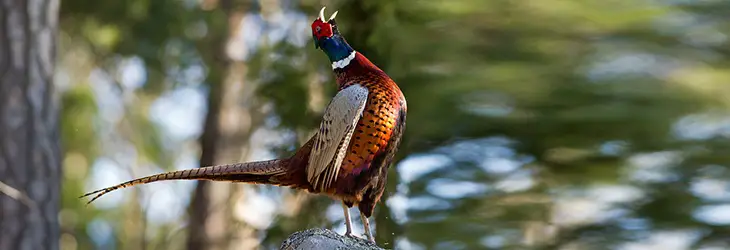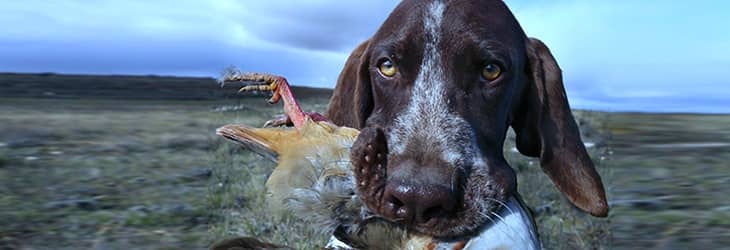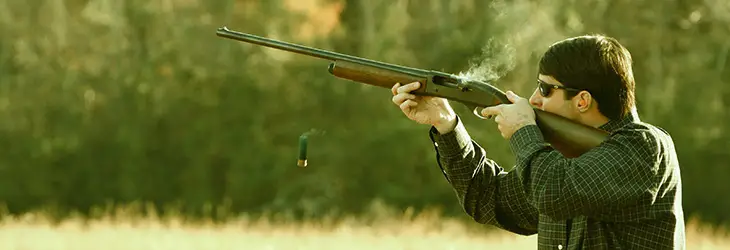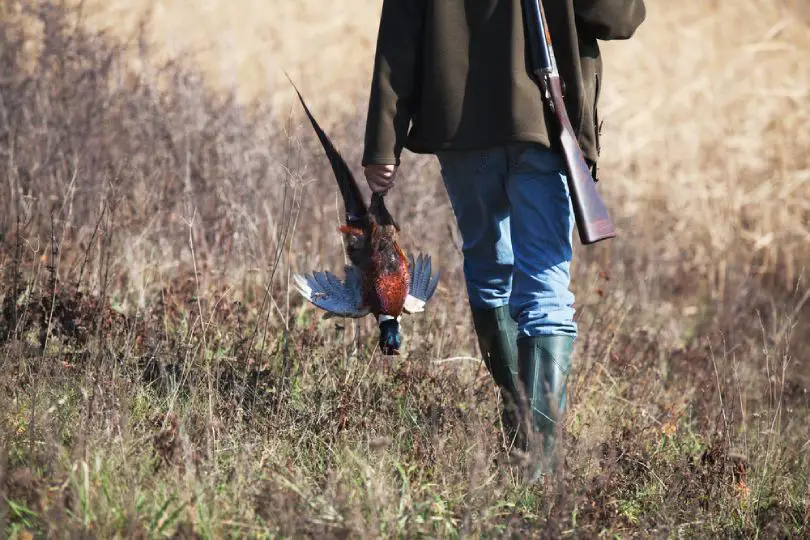Bird hunting is a popular pastime for many outdoor enthusiasts, and it requires a combination of skill, patience, and knowledge. Whether you are a seasoned hunter or just starting out, having the right tips and techniques can make all the difference in your success rate.
In this article, we will explore some essential tips and strategies to help you become a more successful and ethical bird hunter. We’ll discuss different techniques of bird hunting and some of the hunters best practices that can help you score a clean and easy game.
Whether you are targeting waterfowl, upland birds, or migratory birds, these tips will help you increase your chances of a successful hunt disturbing the surrounding natural environment. Let’s get started.
Why Is Bird Hunting So Popular?

Bird hunting is a fascinating sport that can be enjoyed during leisure time. People from various professions love to enjoy their summer afternoons running after the birds; patiently waiting to pull the trigger and shoot the birds.
The adrenalin rush, quality time spent with hunting partners, strategic planning, and the delicious meal that comes afterward — all are equally rewarding in a hunt and that is the major reason why people are so interested in bird hunting in the US.
Bird hunting is also considered to be essential for retaining the balance in the ecosystem if carefully monitored. It is beneficial to the ecosystem in the following ways.
1. Population Control
If the maximum catch limit is set, game birds will be kept away from overpopulating an area and creating a nuisance to local people and infrastructure.
Bird hunting keeps the population in check and ensures that they’re not depleting the resources and disturbing humans living in the area.
A controlled population may also mean that the spread of diseases will be minimized and the birds will be healthier.
2. Eliminating Unsuitable Birds
During hunting, only the strongest and smartest birds survive. This means that all the less suitable birds will be removed from the population.
Hunting is a way people can influence the evolution of the bird directly. That way, smart and capable birds will be able to breed and pass on their genes to the next generation.
3. Preserving Habitat
Large areas are often kept solitary using fence lines or natural borders, solely for the bird hunting season. These habitats are available to all species, including the seasonal flying birds/game birds.
This means that other upland game birds and wildlife can be benefitted and can thrive in existence.
Gears Needed For Bird Hunting
Bird hunting is a gear-intensive sport. This means that you need quite a lot of equipment before you hit the woods. Whether you are after a ruffed grouse, a pheasant, a quail, or any other game bird; you’ll need to stay prepared.
The most common equipment that you’ll need to carry in your upland bird hunting trip are:
- Hunting gun (shotgun/rifle) or your bow and arrow
- Spotting Scope with a Rangefinder
- Hunting license
- Gun stand
- Ammo
- Binoculars
- Bird hunting dog
- Bird hunting vest
- Boots
Bird Hunting Tips and Tricks: Pro Tips From the Experts
While there are many resources available for beginner hunters, learning from the experts can provide valuable insights and advanced techniques to help you take your bird hunting skills to the next level.
Here are some of the pro bird hunting tips we’ve collected from hunters across the US:
1. Take a bird hunting dog

A companion can be great when hunting for birds. Bird hunting dogs, also known as the pointing dogs, can be the perfect companion for your pheasant hunting trips – they can help you track down the game, flushing birds out of their cover, and retrieve the birds after they’ve been hunted.
The best part of this is, a well-trained pointing dog can retrieve your game without alerting the other birds nearby. This increases the chance of a successful hunt. You’ll also have a good time with your dog.
2. Adapt to the patterns
You must know the pattern of your shots in order to aim at your target. Experimenting with different chokes by changing your shot size will come in handy.
If you are good at aiming, you may want to use a tighter choke. If you are hunting birds at mid-range, you might want a more open choke.
3. Know the proper stance
The next on our list of tips and tricks of bird hunting is knowing the proper stance. It can make a huge difference in your performance. You should stand straight with your elbows taut and eyes fixed on the target.
Your lead foot must point directly toward the target, and the feet should be approximately shoulder-width apart from each other.
4. Nose over toes
Never lean backward or bend your hips. This will reduce your balance, and you may fall due to the recoil of your gun. To ensure safe and good shooting, always lean forward. Keep your nose in front of your toes.
5. Practice aiming

This is perhaps one of the most important tips for bird hunting. You’ll need to practice aiming and mounting your gun at home before heading out to hunt.
When practicing, follow all the safety precautions necessary. You can use a laser rangefinder or a laser pointer to aim at the duck or goose and then shoot it. Using sporting clays can be a good way to improve your accuracy.
Hit your local shooting range and practice with clay targets until you’re confident in your shots. Keep increasing the distance if you feel like your progress is becoming slow.
6. Timing your hunts
Before heading out for bird hunting, you should analyze all the details of the bird you’re going to hunt and the areas you’ll be hunting in. Assess the time when the birds are seen more often and where you’ll find them in numbers.
The optimal time for hunting is early in the morning and in the evening.
It is recommended that you know your timing and be prepared to chase the birds when they’re abundant.
7. Locate the hunting grounds
Many beginner bird hunters fail to understand the significance of the hunting grounds, which results in scoring fewer games. Knowing the perfect hunting grounds can make a big impact on the number of games you’ll hunt.
If you’re hunting in a game reserve or a club, it is more likely that the areas are designed in such a way that it is optimal for bird hunting.
If you’re hunting in the wild, you should first study the bird’s behavior and flight patterns in order to know which areas are the best for hunting.
8. Be patient
Many hunters often get frustrated when they can’t catch their games within an hour or so of hunting. This is a common mistake that should be avoided.
You must be patient and quietly observe the birds before shooting. Using a bird hunting vest will be beneficial if you plan to camp on one spot for longer.
9. Concentrate on the front end
When hunting, you should always concentrate on the front end of your target. This is important if you want to reduce the chance of missing the target.
It is because the wind directions and other factors may affect the bullet direction, which may divert the bullet from the target. This is why you should always aim for the front end of your target.
10. Know the regulations
The last but not the least bird hunting tips for today is preparing yourself according to the local regulations beforehand.
Before you head out for hunting, you should study the state’s hunting laws and regulations thoroughly. Beware of any hunting restrictions and firearm safety before you move out.
You may find regulation books for the area you want to hunt, and you should read the book thoroughly to know the things you should follow and what you should avoid.
You must also be aware of the tag and recording of the game. In specific areas, it is a crime not to tag the game which may result in fines, and you may even end up in jail.
Some Other Recommendations
Other than bird hunting tips and tricks discussed previously, there are a few other things that you should know in order to enhance your hunting experience.
To start off, you should always know the gauge of the shotgun that you’ll use. Know the caliber and drift angle to perfectly line up your shots.
In addition to that, you should ALWAYS carry your hunting license and tagging stickers. It is very important, and you may be jailed or fined if it’s not found with you.
Also, make sure that you are stealthy when looking for birds. It is important because if you are visible, the birds will be aware of your presence and will fly off to a safer location.
Precautions
Although it is a fascinating and adventurous sport, things might not go according to plan.
Just like the popular Big Chompy Bird Hunting game, hunting may become treacherous, and you might face challenges.
This is why you must follow a few simple safety precautions to ensure that you’re safe and sound when hunting for birds. Think of them as bird hunting tips to follow before you head out in the woods. The safety precautions are:
- Carry a waterproof fire-starting kit with you at all times. This is crucial because you should be able to dry yourself off after long hours in water. This will help prevent water-borne diseases or hypothermia.
- Carry an emergency lifeguard in case you fall off the boat.
- Check your boat and equipment before you leave for the hunt.
- Make sure you are aware of the proper dangers that you might face.
- Never attempt to overload a boat. This might cause it to flip.
- Inform your close ones where you’re going and when you’re expected to return.
- Fill your boat or ATV box with safety gear and other necessary equipment. You must take sufficient rations, medicines, and other tools that you might need in an emergency.
Conclusion
Bird hunting can be an exciting and rewarding experience, and with the right tips and techniques, hunters can increase their chances of success while being ethical and responsible.
If you want an adventurous and thrilling experience, bird hunting can be the right choice for you. It’s also a great past-time activity. However, success can be a bit tricky to achieve here as the birds have the power of flight.
However, if you follow all the essential bird hunting tips and tricks, your chance of securing multiple games will increase significantly. Hit your local shooting range and collect tips from expert hunters. They will be able to help you secure your game every time you hit the woods.
And with that, we’re at the end of our today’s discussion. We’ve tried to provide some of the most effective tips and tricks regarding bird hunting to make your hunting seamless and efficient. Thanks for reading this far. I wish you all a great weekend ahead, and happy hunting to you!
FAQs
1. What State Has The Best Upland Bird Hunting?
Ans. If your primary target is ruffed grouse, the northern half of Minnesota will be best for you. If you are seeking pheasants or prairie chickens, South Dakota will be the best place to look. Other areas like Nebraska, Idaho, and Montana also hold a large number of game birds.
2. Where Is The Best Place To Shoot A Bird?
Ans. If you’re hunting small to medium birds, point your reticle to the center of the bird’s chest. All the vital organs of a bird goes through the chest or the neck area. If the game bird is facing your opposite direction, a well placed shot the the neck area will ensure a clean kill without damaging the meat. Avoid shooting in the belly/breast area.
3. What Is The Fastest Upland Bird?
Ans. The peregrine falcon. This mighty speedstar can reach up to 385 km/h (240 mph) when diving to catch prey. Although they’re not “technically” considered as an upland game bird, they are used in a traditional hunting method named “Falconry”.
4. What Is The Best Time To Shoot Birds?
Ans. In general, the best time for bird hunting is in the low light conditions of early morning and late in the afternoon. Birds like grouse, waterfowl, quail, and pheasants are most active during those times.
5. What Are Hunting Laws In The US?
Ans. The hunting rules and regulation vary upon states and the type of hunting you’re approaching. However, there are some generalized instructions that every bird hunter in the USA are expected to follow. Here are the general hunting laws that are active across the country:
- You’ll need to obtain a valid state hunting license
- You’ll have a maximum limit of how many bird you can hunt
- You’ll only be able to hunt during the specific hunting seasons
- In some areas, there are also limitations on the method you hunt
- There are specific guidance on how to hunt on a public land









Leave a Comment